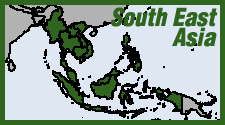 June 30 marks one year since the ultra-hardline President Rodrigo Duterte took office in the Philippines, on a pledge to halt the "virulent social disease" of drug abuse. Officials boast that crime has dropped, thousands have been arrested on drug offenses, and a million users have turned themselves in for treatment programs instead of jail. The usual totalitarian rhetoric is employed to justify the price in human lives for this supposed progress—the bloodletting is necessary for the health of the nation. "There are thousands of people who are being killed, yes," Manila police chief Oscar Albayalde told Reuters for a one-year assesment of Duterte's crackdown. "But there are millions who live, see?"
June 30 marks one year since the ultra-hardline President Rodrigo Duterte took office in the Philippines, on a pledge to halt the "virulent social disease" of drug abuse. Officials boast that crime has dropped, thousands have been arrested on drug offenses, and a million users have turned themselves in for treatment programs instead of jail. The usual totalitarian rhetoric is employed to justify the price in human lives for this supposed progress—the bloodletting is necessary for the health of the nation. "There are thousands of people who are being killed, yes," Manila police chief Oscar Albayalde told Reuters for a one-year assesment of Duterte's crackdown. "But there are millions who live, see?"
The crackdown's exact death toll is disputed, with critics placing the figure far above the 5,000 officially recognized as either drug-related killings, or suspects shot dead during police operations. (Some have put the figure of those killed by the police and vigilantes as high as 7,000 or even 8,000.)
Protest is emerging, despite the atmosphere of terror. "This president behaves as if he is above the law—that he is the law," Reuters quotes activist priest Amado Picardal, one of the country's most courageous voices of dissent. "He has ignored the rule of law and human rights."
Among the upwards of 80,000 arrested under Duterte's rule are some who have been pretty clearly framed for speaking out against him—most prominently, opposition politician Leila de Lima. She was slapped with dubious drug charges after she held congressional hearings on Duterte's human rights abuses. "The promise of eradicating drugs has defined his presidency," she told Reuters from her prison cell. "It's actually a sham because they are targeting the wrong people."
Meaning the low-level dealers rather than the wholesale suppliers. Reuters notes that the price of crystal meth, known in local lingo as shabu, should be rising as less supply hits the streets. Instead, the Philippine Drug Enforcement Agency's own figures show the price of shabu has actually dropped in Manila. In July 2016, the low end price for a gram of shabu was 1,200 pesos ($24), according to PDEA. As of this May, the figure stood at 1,000 pesos ($2)), the agency finds.
"If prices have fallen, it's an indication that enforcement actions have not been effective," said Gloria Lai of the International Drug Policy Consortium, a network of non-governmental organizations.
Amid the blood-drenched drug crackdown, Duterte has declared martial law in the southern island of Mindanao, where his security forces are fighting jihadist militants. The battle continues for Mindanao town of Marawi, which was seized by ISIS-linked insurgents in May. Over four days in Marawi, Britain's Sky News watched the Philippine military carrying out repeated air-strikes on the town, with the residents caught between both sides.
The martial law declaration is particularly controversial, as it invokes memories of the late dictator Ferdinand Marcos, under whose harsh rule the entire Philippines saw a decade of martial law. The biggest protests againt Duterte came on Feb. 25, when thousands took to the streets of Manila to mark the anniversary of the 1986 "People Power Revolution" that brought Marcos down. Among those speaking at the commemoration was former president Benigno "Noynoy" Aquino III—son of the late pro-democracy leader Corazon Aquino, who led the 1986 uprising and later became president herself. Noynoy Aquino made clear that the march was more than an act of remembrance. "[The] fight is not over if we are not ready to defend our rights," he said, CNN reported.
But Noynoy himself is a scion of the Philippines' elite, who was again and again implicated in bloody repression during his term as president. It was the backlash against his oligarchic political class that led to Duterte being elected as a "populist" and "outsider." This posture won Duterte a lot of good will from the people, and even from the Philippine left. This good will is only now starting to wear thin.
In a bad sign, just after the one-year anniversary of his rule, Dutere announced the appointment of 59 figures from the armed forces and Philippine National Police to head civilian agencies and fill cabinet posts—including some very unsavory figures. The Philippines Inquirer says that among the incoming officials are a National Police intelligence officer convicted for the abduction of a foreigner but eventually acquitted by the Supreme Court. Many of them are from Mindanao, or were assigned to Davao City. That's the Mindanao city where Duterte served as mayor for 22 years, and oversaw anti-drug death squads in what proved a dry run for his presidency.







Recent comments
3 weeks 3 days ago
3 weeks 3 days ago
6 weeks 4 days ago
7 weeks 3 days ago
11 weeks 4 days ago
15 weeks 2 days ago
19 weeks 2 days ago
20 weeks 1 day ago
30 weeks 1 day ago
34 weeks 1 day ago